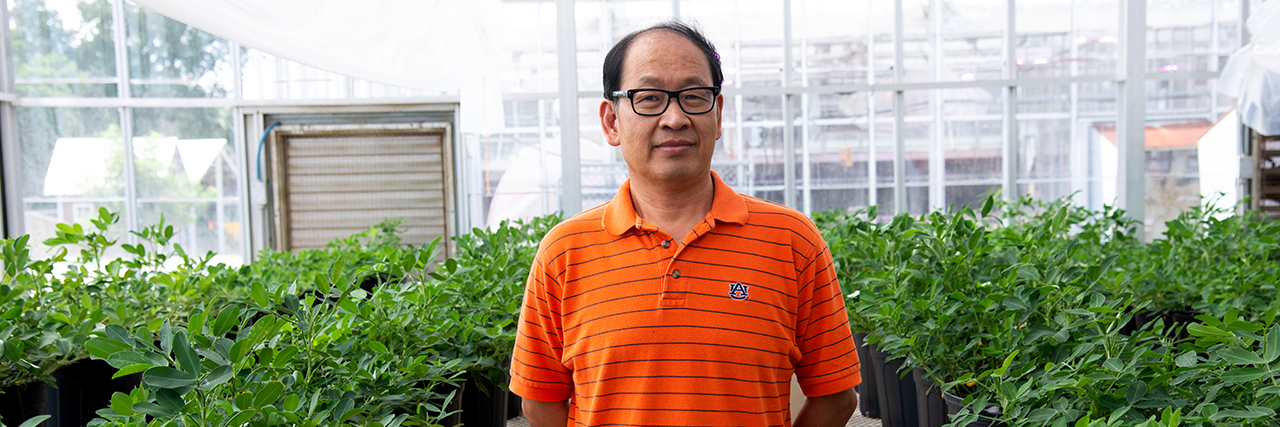RESEARCH ACTIVITIES
Primary research responsibilities are in peanut breeding, genetics, and genomics. The major objectives of the research are to develop cultivars with desirable improved traits adapted to all U.S. peanut producing regions; and enhance elite peanut germplasm through conventional and genomic approaches. The targeted traits are high yield, resistance to tomato spotted wilt virus and leaf spot, maturity, seed characteristics (size, split, and taste etc.), high oil content, high oleic and low linoleic fatty acids, and drought tolerance.
In addition to the breeding effort, second focus of my research program is to understand the genetic principles of important agronomic traits in peanut; to map quantitative trait loci (QTLs) underlying the desired traits in peanuts; to explore genetic potential for peanut improvement, and to discover new genes related to desirable agronomic and seed quality traits. Ongoing projects include the research to identify drought-induced genes and to associate and map the genes or alleles that control leaf spot disease resistance in peanuts. In order to discover alleles/genes contributing to the leaf spot resistance in Arachis germplasm for cultivated peanut improvement, several recombinant inbred line (RIL) populations were constructed. A great effort of phenotyping the US peanut mini-core collection has achieved significant progress on identifying QTLs underlying TSWV (tomato spotted wilt virus) resistance, leaf spot resistance, peanut favor characters and chemistry. We also investigated the effects of drought stress on symbiotic nitrogen fixation in peanut. A runner-type peanut cultivar ‘AU-NPL 17’ was released in 2017 and a Virginia-type peanut cultivar named as ‘AU14-34’ was released in 2021.


